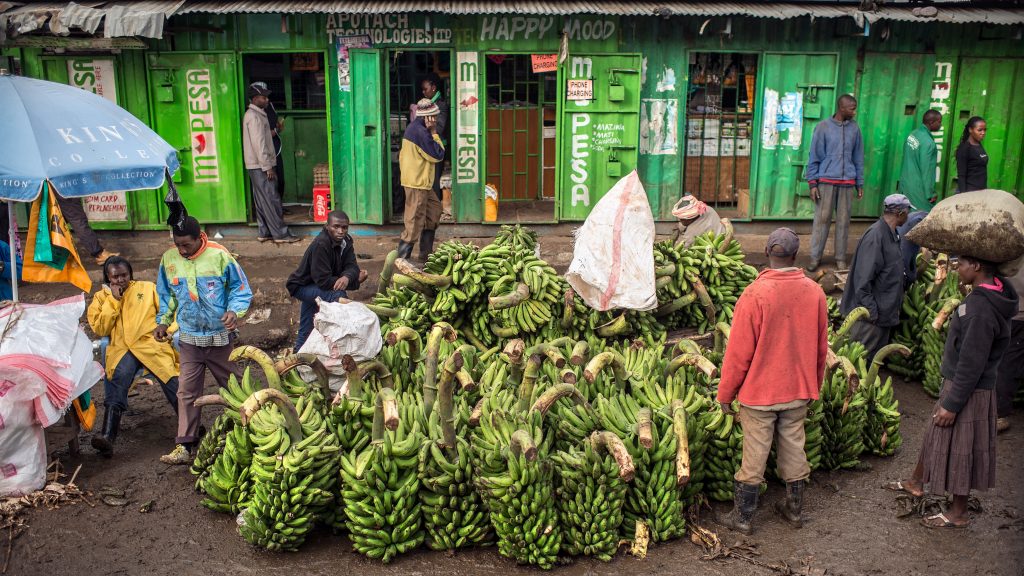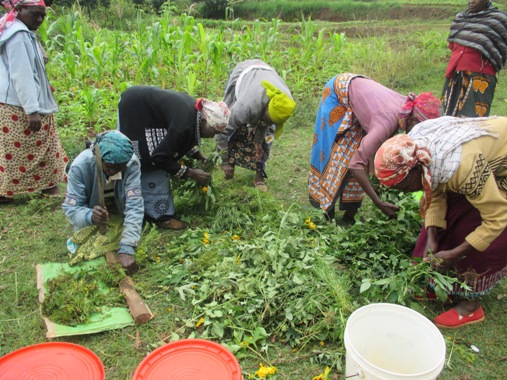Plant health key to reducing world hunger
By Katie Tomlinson On the 16th October, World Food Day events will take place around the globe to draw attention to the growing problem of world hunger and malnutrition. Shockingly, the FAO has reported that 10% of the global population experienced severe food insecurity in 2017 and that world hunger has increased for the third…
The Umatui amazing site women group tackle Tuta absoluta
Located in semi-arid Eastern Kenya, Machakos county is home to the Umatui amazing site women group. The group comprises 15 members who mainly grow tomatoes, cowpeas, pigeon peas, and maize. It is among eight other women groups working with Katoloni Community Based Organisation (CBO), a non governmental organization under infonet biovision. The CBO runs a mobile…
Update: New Pest & Disease Records (13 October 18)
We’ve selected a few of the latest new geographic, host and species records for plant pests and diseases from CAB Abstracts. Records this fortnight include the first report of sweet potato Badnavirus in South Africa. The first report of Arabis mosaic virus in rhubarb in Poland and the first report of maize yellow mosaic virus…
Plantwise Photoguides
The Plantwise training for plant doctors (Module 1: Field diagnostics and plant clinic operation) is unique in that it is the only international training that focuses on field diagnosis and uses live plant samples in the learning process. The training takes advantage of the fact that many of the symptoms caused by the different groups…
Improving food crop yields using blue-green algae
Using specialised carbon-fixing material from blue-green algae, scientists have successfully engineered crop plants to boost photosynthetic productivity and crop yields. This exciting development promises to increase the yield of important food crops such as cassava, wheat and cowpea.
Plantwise showcases plant health expertise at TROPED 2018
By Muhammad Faheem and Chan Fook-Wing At the recent International Conference on Tropical Fruit Pest and Diseases (known as TROPED), which took place in Malaysia, attendees from countries including the Philippines, Fiji, China, Sudan, and India learned about Plantwise through a series of talks, demos, and an exhibition stand.
Grand Challenges 2018 – solutions for safeguarding food security and sustaining trade and livelihoods
This year’s British Society for Plant Pathology (BSPP) Grand Challenges in Plant Pathology Study Group gathered at Chicheley Hall, Milton Keynes, UK, 25-28 September 2018. Chicheley Hall is a grade II listed country mansion, home of the Kavli Royal Society International Centre. This was the second meeting of its kind, following on from the first…
Philippine farmers worst hit by Typhoon Mangkhut
Typhoon Mangkhut (local name: Ompong) recently swept across the northern island of Luzon, Philippines, severely affecting the country’s bread basket. According to the National Disaster Risk Reduction and Management Council, approximately 171,932 farmers have suffered as a consequence of the storm.
Test your plant health knowledge with the plant doctor quiz
>> New quiz just added Plantwise plant doctors are at the heart of our plant clinic network providing advice and information to farmers, logging their data for the Plantwise Knowledge Bank, and always adapting to new outbreaks and technologies. Think you’ve got what it takes to be a plant doctor? Take our online quiz and…
Joint forces against highly invasive Fall Armyworm Pest
Reblogged from plantix. PEAT, CABI and ICRISAT launch the first live tracking tool for Fall Armyworm (FAW) in India. The Fall Armyworm is a very invasive pest which is highly destructive to more than 80 plant species. The pest is native to America and has conquered the African continent in 2016. Since then, it has…





